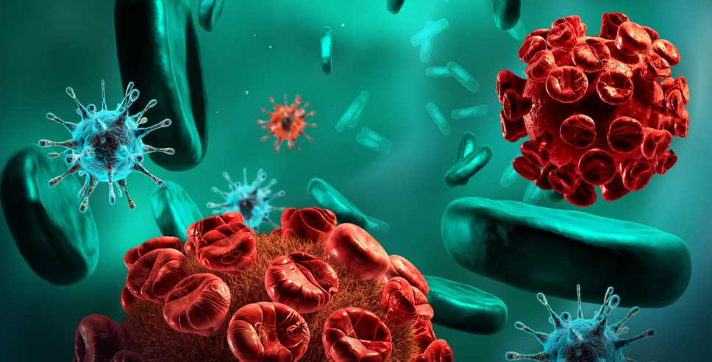
They equipped the healthy human body with powerful tools for resisting invading microorganisms such as viruses, bacteria, and parasites. Unfortunately, this set of tools, or the immune system, sometimes goes awry and attacks the body itself. They were referring to these misdirected immune responses as autoimmunity.
An autoimmune disorder occurs when the immune system mistakenly attacks and destroys healthy body tissue in a small area or throughout the whole body. According to Johns Hopkins Autoimmune Research Center, at least ten million Americans suffer from more than eighty illnesses caused by autoimmunity. The following are some of the more common ones:
| Celiac Disease | Immune Thrombocytopenic (ITP) | Graves’ Disease |
| Addison’s Disease | Goodpasture’s Syndrome | Pemphigus Vulgaris |
| Alopecia Areata | Wegener’s Granulomatosis | Polymyositis |
| Ankylosing Spondylitis | Guillain-Barré Syndrome | Primary Biliary Cirrhosis |
| Autoimmune Hemolytic Anemia | Hashimoto’s Disease | Psoriasis |
| Autoimmune Hepatitis | Hidradenitis Suppurativa | Rheumatoid Arthritis |
| Berger’s disease (IgA Nephropathy) | Giant Cell Arteritis (Temporal A) | Scleroderma (Morphea) |
| Bullous Pemphigoid | Interstitial Cystitis | Sharp Syndrome |
| Acute Disseminated Encephalomyelitis | Isaacs’ Syndrome (Neuromyotonia) | Sjögren’s Syndrome |
| Crohn’s Disease | Kawasaki Disease | Stiff Person Syndrome |
| Dermatomyositis | Lupus | Ulcerative Colitis |
| Diabetes | Multiple Sclerosis (MS) | Vitiligo |
| Endometriosis | Myasthenia Gravis | Narcolepsy |
Who is Affected by Autoimmune Disorders?
Autoimmunity is present in everyone to some extent. Although it is usually harmless, autoimmunity can cause a broad spectrum of human illnesses in some individuals. Unfortunately, autoimmune diseases are a growing threat to the health of all Americans, especially women. Taken as a whole, they represent the fourth-largest cause of disability among women in the United States. Currently, 78 percent of those affected with an autoimmune disease are women.
What are the Risks Associated with Autoimmunity?
Patients with autoimmunity and systemic inflammation are prone to different diseases. They have much higher rates of obesity, diabetes, hypertension, renal insufficiency, and cardiovascular disease than the rest of the healthy population. These connections between autoimmunity, inflammation, and cardiovascular and renal complications can make autoimmune disorders challenging to treat. Multifaceted, holistic interventions such as nutritional immunomodulation can weaken these ties. It reduces the incidence of avoidable disease and disability and promotes tolerance to self and environmental antigens.
Our Approach to Treating Autoimmune Diseases:
At Merge Medical Center, we are a leader in the holistic medicine approach to managing autoimmune disease in the Charleston area. We view autoimmunity as an ongoing maladaptive process rather than a static pathological condition. The results of the functional medicine model lie in its ability to detect diseases. Effective at a much earlier stage in their development and to assess the body as a whole. The model also opens the door to a broader range of nontoxic strategies for preventing and treating existing diseases.
Considering the following in the evaluation and treatment of all patients who are suffering from an autoimmune disorder:
| Food Sensitivities | Balance of Microorganisms |
| Inflammation Markers | Hormone Deficiency or Imbalance |
| Toxin Exposures | Detoxification Pathways |
| Latent or Subclinical Infections | Digestive Function |
| Family History | Nutritional Deficiencies |
Ask for the appropriate tests to assess your condition. Our team will develop a personalized herbal and nutritional support program to enhance overall health and wellness, educate you on certain lifestyle modifications, and recommend specific dietary supplements to address your condition. In some cases, prescription medications or natural hormone replacement may be recommended. Body work such as Bemer Therapy may also be advised to support you.


